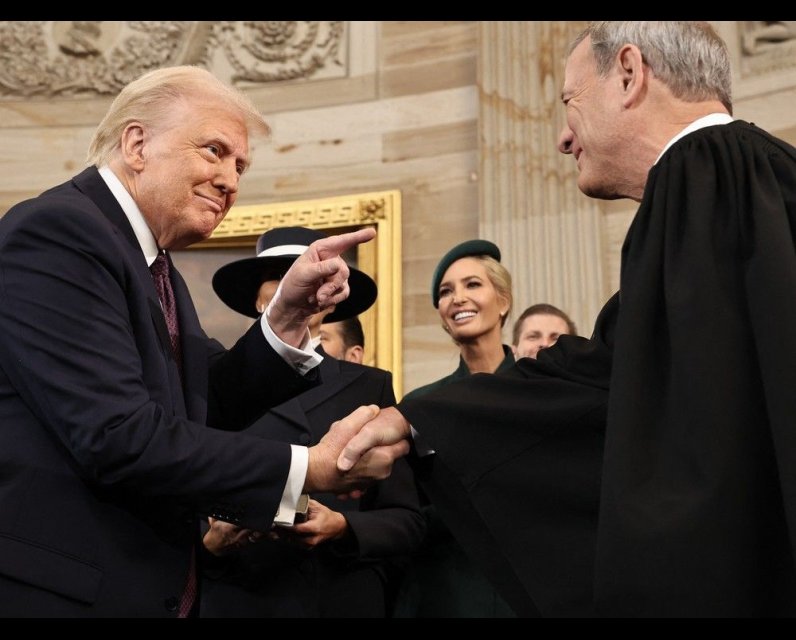Stay informed
Supreme Court reckoning begins for Trump’s tariffs

WASHINGTON, D.C. — Are President Donald Trump’s emergency tariffs legal? We’re about to find out.
It’s a big day for the United States, especially for those interested in the separation of powers. Today, the Supreme Court in Washington, D.C., begins hearing arguments in two cases that will determine whether the president was within his constitutional rights to impose tariffs on countries around the globe — or whether it was executive overreach. Trump declared national emergencies related to fentanyl trafficking and the trade deficit as justification for his tariffs under the International Emergency Economic Powers Act (IEEPA), and now the justices must decide whether that was legal and, if so, whether the conditions for declaring national emergencies were met.
IEEPA tariff rates today range from 10 to 35 per cent, depending on the country and product. By the end of this fiscal year, if they remain in place, the tariffs are expected to rake in US$195 billion in revenue for the U.S. government.
What is IEEPA?The statute was adopted in 1977 to regulate presidential emergency powers previously exercised under the broader Trading with the Enemy Act, which lacked limits and oversight. It empowers the executive to use economic powers “to deal with any unusual and extraordinary threat, which has its source in whole or substantial part outside the United States, to the national security, foreign policy, or economy of the United States, if the President declares a national emergency with respect to such threat.”
In its nearly 50 years of existence, it has been a tool for sanctioning countries and terrorist groups, but it has never been used to impose tariffs — until now.
Courting mattersThe legal argument centres on whether IEEPA gives the president the authority to impose tariffs without congressional approval — and whether delegating that power is constitutional.
The president’s team argues that Trump has broad powers to “regulate importation” during a national emergency and that this includes tariffs. But opponents note that the term “tariffs” is absent from the IEEPA statute, and that the constitutional authority to impose tariffs has long been exclusively vested in Congress.
According to Thomas Berry, director of the Robert A. Levy Center for Constitutional Studies at the CATO Institute, IEEPA enables a president to take various actions in the case of a national emergency. The statute lists various verbs and nouns, and by “plucking two of them,” the administration is focused on the words “regulate” and “importation.”
“(The White House) is arguing that the authority to regulate importation to deal with a national emergency includes the authority to impose tariffs essentially as leverage in negotiations,” explains Berry, noting that it’s a “novel” interpretation of the law.
Trump’s lawyers argue that the congressional approval for the president to impose tariffs under IEEPA came when the law was passed and that the statute can be read broadly. But if that’s deemed to be true, such authority would have to be granted under one of two doctrines: nondelegation or the major questions doctrine.
The nondelegation doctrine, Berry says, “holds that Congress can’t pass a law that’s so vague that it effectively allows the president to fill in the gaps and decide policy by himself.”
Opponents argue that even if the court decides that IEEPA grants the president authority to levy tariffs, the statute is so broad that it violates the nondelegation doctrine. But that will be a “tough argument” to make, according to Berry, “because no law has been struck down by the Supreme Court under the nondelegation doctrine in 90 years.”
So the justices’ decision will likely hinge on their statutory interpretation of IEEPA — on whether they believe that the words “regulate” and “importation” constitute legal authority for the president’s tariffs during a declared emergency.
The White House believes IEEPA grants the president broad authority to respond to foreign threats, including economic and national security concerns, and that tariffs are a tool for protecting the U.S. economy.
Many legal experts, including CATO’s Berry and Clark Packard, a research fellow in the Herbert A. Stiefel Center for Trade Policy Studies, believe the Supreme Court will rule against the president.
Berry points to the major questions doctrine that has been developed in recent years by the conservative-leaning justices. It says the courts should be very skeptical when a president tries to use an old statute to enact a new policy that’s never been used before or that no one anticipated when it was enacted. This doctrine was applied when President Joe Biden tried to use an old 2003 HEROES Act to enact student loan forgiveness, and the court struck that down, 6-3.
“So I think all of the precedents and reasoning of those decisions apply just as much here, and the conservative justice certainly should, by the same reasoning, strike this down,” says Berry.
Packard says the “law is pretty clearly on the anti-tariff side.” He gives it a 60:40 chance, but like many of his colleagues across Washington, he notes that “it’s certainly not a slam dunk.”
Trump’s best chance for winning? His legal team is arguing that this is a national security and foreign affairs case because it involves international negotiations and alleged drugs crossing the border, for which his legal team says he needs more leeway and deference.
“It’s possible that he might win over some justices who are particularly concerned about national security issues,” says Berry, pointing to Justices Samuel Alito and Clarence Thomas. “But I don’t see that winning over a five-justice majority.”
Whatever the justices decide, the ruling could come quickly, with some experts pointing to as early as a month from now.
The president is clearly concerned that this will not go his way. He posted on Truth Social on Sunday that if his ability to move quickly and nimbly on tariffs is removed, “we would be defenseless, leading perhaps even to the ruination of our Nation.”
Trump and his team have also warned that refunding the IEEPA tariffs could cause an administrative nightmare and hurt the U.S. economy.
Trade experts point out that Customs and Border Protection are accustomed to processing duty refunds — and that the president has plenty of other, clearly legal levers he can pull to impose such tariffs.
Looking for cuesEveryone who has been affected by the tariffs, from world leaders to small business owners, will be watching to see what the justices ask the legal teams on Wednesday.
One rule of thumb, Berry says, is to see whether a justice gives more questions to one side. “That usually means they’re more skeptical of that side,” he says.
“The more justices raise national security, the more they might be sympathetic to the administration. But the more they raise separation of powers, major questions, and statutory interpretation concerns, I think the more sympathetic they are to the challengers.”
National Post
Our website is the place for the latest breaking news, exclusive scoops, longreads and provocative commentary. Please bookmark nationalpost.com and sign up for our newsletters here.




Comments
Be the first to comment